Gerhard Liebmann | |
|---|---|
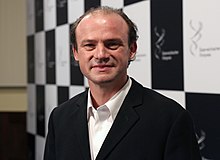 | |
| Born | 20 April 1970 |
| Occupation | Actor |
| Years active | 1998-present |
Gerhard Liebmann (born 20 April 1970) is an Austrian actor. [1] He appeared in more than fifty films since 1998.
Gerhard Liebmann | |
|---|---|
 | |
| Born | 20 April 1970 |
| Occupation | Actor |
| Years active | 1998-present |
Gerhard Liebmann (born 20 April 1970) is an Austrian actor. [1] He appeared in more than fifty films since 1998.
| Year | Title | Role | Notes |
|---|---|---|---|
| 2009 | The Bone Man | ||
| Lourdes | |||
| 2010 | The Unintentional Kidnapping of Mrs. Elfriede Ott | ||
| 2011 | Breathing | ||
| A Day for a Miracle | |||
| 2013 | Blood Glacier | Janek | |
| 2022 | Eismayer | Charles Eismayer | |
| 2025 | Welcome Home Baby | Scheichl | Premiere at the BIFF Panorama 2025 [2] |
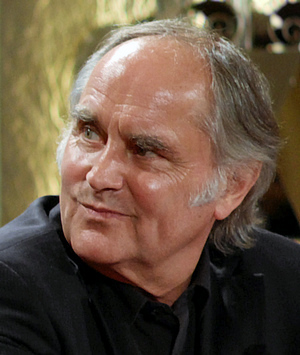
Michael Alexander Verhoeven was a German film director, screenwriter, film and television producer, and actor. He was also a qualified Doctor of Medicine. He was considered a political filmmaker.

SV Ried, commonly known as SV Guntamatic Ried for sponsorship reasons, is an Austrian association football club based in Ried im Innkreis, Upper Austria. The team plays its home matches at Josko Arena, a stadium with a capacity of 7,680. The team currently play in Austrian 2. Liga.
Steve Liebmann is an Australian retired television presenter, journalist and radio broadcaster.

Wolfgang Becker was a German film director and screenwriter, best known to international audiences for his work Good Bye, Lenin! (2003). He was a co-founder of the production company X Filme Creative Pool which produced his first successful feature film, Das Leben ist eine Baustelle, in 1997.
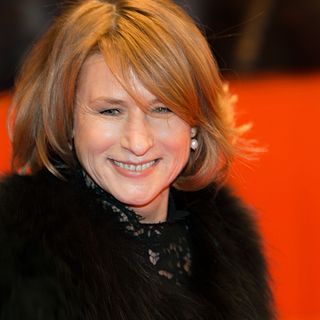
Corinna Harfouch is a German actress.
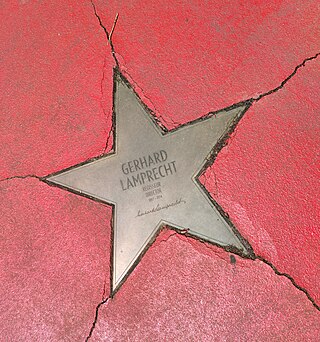
Gerhard Lamprecht was a German film director, screenwriter and film historian. He directed 63 films between 1920 and 1958. He also wrote for 26 films between 1918 and 1958.

The Berlin International Film Festival, usually called the Berlinale, is an annual film festival held in Berlin, Germany. Founded in 1951 and originally run in June, the festival has been held every February since 1978 and is one of Europe's "Big Three" film festivals alongside the Venice Film Festival held in Italy and the Cannes Film Festival held in France. Furthermore, it is one of the "Big Five", the most prestigious film festivals in the world. The festival regularly draws tens of thousands of visitors each year.
Hark Bohm is a German actor, screenwriter, film director, playwright and former professor for cinema studies. He was born in Hamburg-Othmarschen and grew up on the island Amrum. His younger brother was the actor Marquard Bohm, who starred in some of his early films. He is most notable for his long-time collaboration with Rainer Werner Fassbinder.

Rudolf Herrnstadt was a German journalist and communist politician. After abandoning his law studies in 1922, Herrnstadt became a convinced communist. Despite his bourgeois origins, he was accepted into the Communist Party of Germany (KPD) in 1931 and worked for the Soviet military intelligence service Glawnoje Raswedywatelnoje Uprawlenije. As a foreign correspondent for the Berliner Tageblatt, he worked in Prague (1930), Warsaw and Moscow (1933). He emigrated to the Soviet Union in 1939, days before the Invasion of Poland, where he was active in the fight against the Nazi state as editor-in-chief of the newspaper Freies Deutschland in the National Committee for a Free Germany from 1944 during the German-Soviet War.
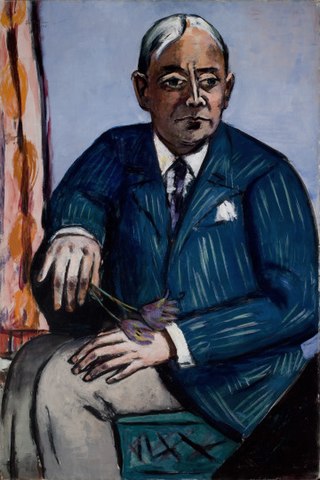
Ludwig Berger was a German-Jewish film director, screenwriter and theatre director. He directed more than 30 films between 1920 and 1969. Berger began working in the German film industry during the Weimar Republic. At Decla-Bioscop and later UFA he established a reputation as a leading director of silent films. He emigrated to Hollywood, but was unable to establish himself and returned to Europe. He subsequently worked both in France and Germany. He was a member of the jury at the 6th Berlin International Film Festival.

The 8th annual Berlin International Film Festival was held from 27 June to 8 July 1958 with the Zoo Palast as the main venue. The festival was opened by then West Berlin's newly elected mayor Willy Brandt.
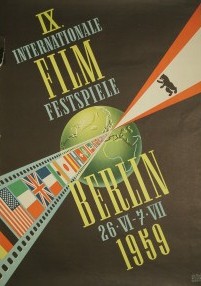
The 9th annual Berlin International Film Festival was held from 26 June to 7 July 1959. The festival welcomed the cinematic movement known as the French New Wave and screened the work of directors such as Jean-Luc Godard, Agnès Varda and François Truffaut.
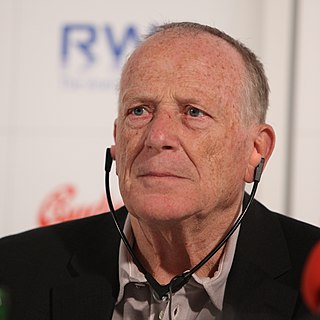
Wolfgang Kohlhaase was a German screenwriter, film director, and writer. He was considered "one of the most important screenwriters in German film history", and was one of the GDR's most well-known and prolific film screenwriters. Kohlhaase was awarded the Honorary Golden Bear at the 2010 Berlin International Film Festival.
The 21st annual Berlin International Film Festival was held from 26 June to 6 July 1971. The Young Filmmakers Forum section was introduced at the festival.

The 26th annual Berlin International Film Festival was held from 25 June to 6 July 1976. The Golden Bear was awarded to Buffalo Bill and the Indians, or Sitting Bull's History Lesson directed by Robert Altman.
Gerhard Olschewski is a German actor. He has appeared in more than 90 films and television shows since 1966. He starred in the 1976 film A Lost Life, which was entered into the 26th Berlin International Film Festival, where he won the Silver Bear for Best Actor.
Rainer Simon is a German film director and screenwriter. He directed 17 films between 1964 and 2000. His How to Marry a King (1969) and Six Make it Through the World (1972) are highly imaginative adaptations of fairy tales by the Grimm Brothers. His 1975 Till Eulenspiegel is based on Renaissance stories, which Christa and Gerhard Wolf recast into a film narration incorporating period history. His 1985 film The Woman and the Stranger won the Golden Bear award at the 35th Berlin International Film Festival. His 1980 film Jadup and Boel entered into the 16th Moscow International Film Festival in 1989.

Blood Glacier is a 2013 Austrian horror film directed by Marvin Kren. The movie had its world premiere at the Toronto International Film Festival on September 6, 2013 and had a limited theatrical release in the United States on May 2, 2014. It stars Gerhard Liebmann as a researcher faced with a strange liquid that poses a threat to anything living.

The Unintentional Kidnapping of Mrs. Elfriede Ott is a 2010 Austrian comedy film directed by Andreas Prochaska.
Welcome Home Baby is an upcoming Austrian-German horror film directed and co-written by Andreas Prochaska. Starring Julia Franz Richter as Judith, an emergency doctor from Berlin, who inherits a villa in Austria. The film opens floodgates of her origins and questions everything she thought about her life. The film selected in Panorama 2025 will have its premiere at the 75th Berlin International Film Festival in February 2025.